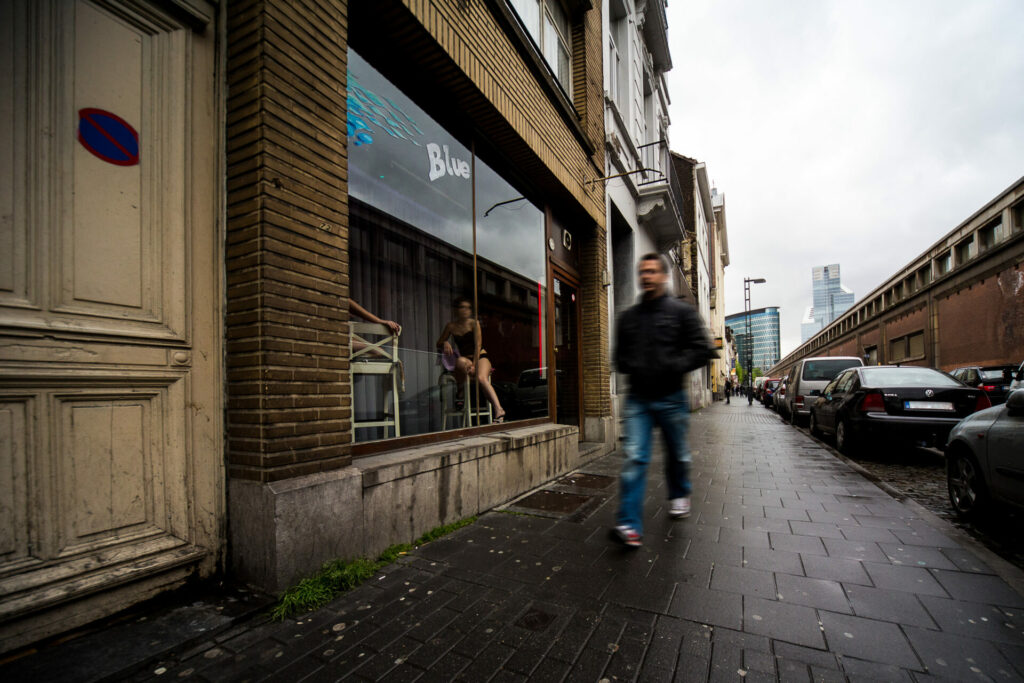The Federal Police has expressed concern about the sexual and economic exploitation of Chinese people in Belgium, particularly within Chinese networks. The exploitation is said to be spreading all over the country.
Eric Garbar, the Head of the Human Trafficking Cell in the Federal Police, sounded the alarm bell in the human trafficking committee of the federal parliament. “It concerns sexual exploitation, but there are also cases of economic exploitation,” Garbar told De Morgen.
The main victims are adult women who enter Belgium with false papers and intermediaries, according to police sources. They rely on Chinese networks upon their arrival and often end up working as prostitutes or workers in shops, catering establishments and massage parlours.
“It’s getting worse, certainly in large cities such as Brussels, Liège, Antwerp and Ghent,” it sounds. “The victims often cannot even read or write.”
Vulnerable victims
The Belgian federal migration centre, Myria, confirms that Chinese human trafficking in Belgium is “clearly on the rise”, based on discussions with care providers in the field.
And the victims are vulnerable, as they are mainly recruited by networks in China. “They are poorly educated and often cannot even read or write,” says Klaus Vanhoutte, Director of Payoke, an anti-trafficking NGO. “Once they arrive in Belgium, they are completely dependent on their Chinese social network.”
Sarah De Hovre, Director of the Brussels aid organisation Pag-Asa, agrees that the victims are “easy prey”. They often pay large sums of money to get to Belgium, and will pay off that debt by working for free.
Related News
The main sectors that see Chinese people exploited are Asian restaurants and massage parlours, according to De Hovre. But prostitution is rife too, especially in the red light district of Brussels – near the Gare du Nord Station in the Alhambra Quarter.
“We have been seeing an increase in Chinese sex workers there for some time now,” says Vanhoutte.
International mobility
That increase is partially caused by the mobility of the cross-border Chinese networks, as they move countries when the justice system comes too close. News site Bruzz found out in February that some of the sex workers spoke a bit of Spanish, suggesting a link with a large Chinese network that was recently broken up in Spain.
“We see a kind of criminal exchange program,” says Stef Janssens of Myria. “When the perpetrators in one country suspect that justice is on their trail, they shift their activities to another. In addition, it is also a punishment system for victims who, so to speak, do not make enough effort to bring in money. They are then sent to Spain, for example, because prices are lower there, so that they have to work longer to pay off their debt.”
The mobility of the networks makes it extra difficult to bring them to justice. Moreover, the victims are psychologically pressured not to speak out, and even if they do, a Chinese lawyer shows up in no time.
Little control
The Netherlands is currently leading a European action plan aimed at the exploitation of Chinese citizens by Chinese criminal groups, of which Belgium is a part of. “All of Europe is concerned about this phenomenon,” said Garbar. The countries exchange information and work together to find and break up the networks.
Belgium also faces a shortage in services that expose human trafficking and economic exploitation, said Peter Van Hauwermeiren, Director of Human Trafficking at the RSZ Inspectorate.
“We now have 39 inspectors. That is not enough to fight, because exploitation can only be detected if we can do enough proactive checks in high-risk sectors,” Van Hauwermeiren told the parliament. According to him, the service needs 57 inspectors.
Reinforcement
Employment Minister Pierre-Yves Dermagne promised reinforcements last year, of which a selection procedure is currently underway, according to his spokesperson. However, the shortage has not yet been resolved.
“The coalition agreement calls the fight against human trafficking an absolute policy priority. But so far we have only seen that on paper," says MP Ben Segers. “If the government is really serious about mapping the criminal networks, then it is urgent to strengthen the ears and eyes on the ground. Minister Dermagne must put his money where his mouth is.”

